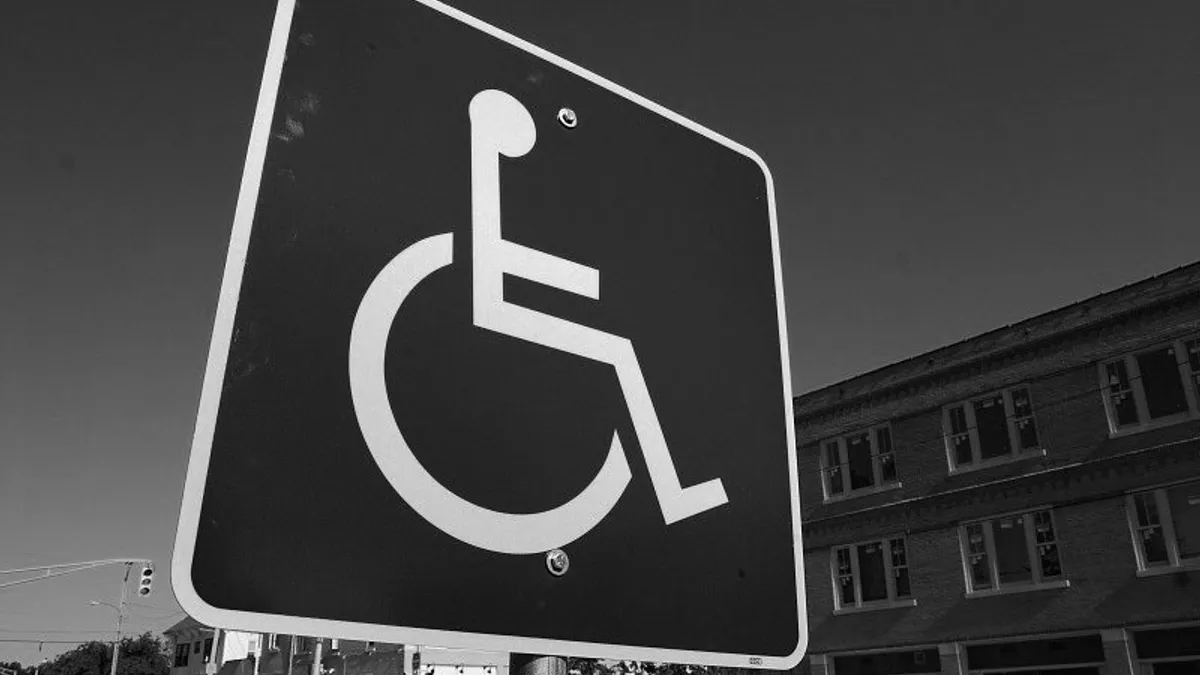Dive Brief:
- A new "Smart Cities for All" toolkit was released last week at the Smart Cities NYC conference, aiming to make urban communities and the technology they deploy more inclusive for people with disabilities.
- The guide, released by Nonprofits Global Initiative for Inclusive ICTs and World Enabled, was built from a survey of 250 experts around the world. 60% of them thought smart cities are failing people with disabilities. Fewer than 20% knew of a smart city that uses technology accessibility standards.
- More than one billion people worldwide have a disability today, and by 2050, at least 1 in 7 people will be a city dweller with a disability.
Dive Insight:
The toolkit is comprised of four new tools — Guide to Implementing Priority ICT Accessibility Standards, Guide to Adopting an ICT Accessibility Procurement Policy, Communicating the Case for Stronger Commitment to Digital Inclusion in Cities, and Database of Solutions for Digital Inclusion in Cities.
The different guides cover everything from step-by-step checklists for making sure ICT standards are understood and followed to a list of existing products that are ready-made with accessibility baked in.
ICT standards are accessibility protocols for information and communication technology. Broadly, they ensure technology products and services can be used by all their intended users, taking into account their differing capabilities.
Because disabilities can span multiple senses and people can be born, develop or temporarily have disabilities, there are a lot of different case uses to consider when installing new systems or tools into a city. Emergency system need to sends out calls, texts and social media messages that ensure everyone can be updated. Digital kiosks need to be built with screen magnifiers and screen readers.
At present, most cities are far from anything close to equal accessibility, the guidebooks found. Three in five global urban planning experts surveyed think smart cities are "failing" in that regard, and less than one in five can name a single city that uses ICT standards:
The toolkit was supported by Microsoft. Toni Townes-Whitley, a vice president at the company, introduced the toolkit at her talk at the Smart Cites NYC conference.
“It can’t be a smart city if it doesn’t empower each and every one of its citizens,” Townes-Whitley said.











